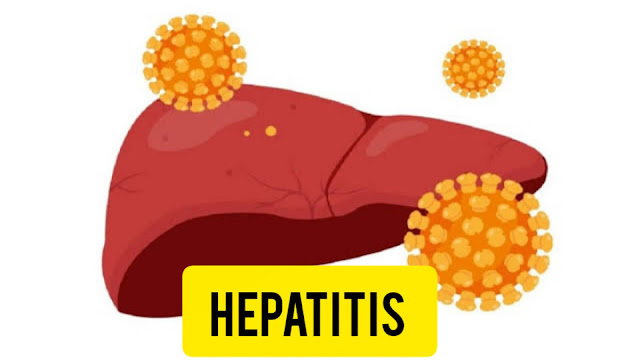Introduction:
Hepatitis is a disease characterized by inflammation of the liver. It can be caused by viruses, alcohol, drugs, or autoimmune disorders. Hepatitis can be acute or chronic, and can lead to serious health complications, including liver failure and liver cancer. In this article, we will discuss the different types of hepatitis, their causes, symptoms, diagnosis, treatment, and prevention.
Types of Hepatitis:
There are five main types of viral hepatitis: A, B, C, D, and E.
Hepatitis A:
Hepatitis A is a highly contagious virus that spreads through contaminated food and water or through close contact with an infected person. The virus can cause a mild illness that lasts a few weeks, but it can also cause severe liver damage in rare cases.
Hepatitis B:
Hepatitis B is spread through contact with infected blood, semen, or other bodily fluids. It can cause a short-term illness or a chronic infection that can lead to liver damage, liver cancer, or even death.
Hepatitis C:
Hepatitis C is spread through contact with infected blood, typically through sharing needles or other drug injection equipment. It can also be transmitted through sexual contact with an infected person. Hepatitis C can cause a chronic infection that can lead to liver damage and liver cancer.
Hepatitis D:
Hepatitis D is a rare virus that only affects people who are already infected with hepatitis B. It can cause a severe liver disease that can be difficult to treat.
Hepatitis E:
Hepatitis E is typically spread through contaminated water or food, and it can cause a mild, acute illness that resolves on its own. However, it can also cause a severe illness in pregnant women and people with weakened immune systems.
Causes of Hepatitis:
In addition to the viral causes of hepatitis, there are several non-viral causes as well:
1. Alcoholic hepatitis:
Alcoholic hepatitis is caused by excessive alcohol consumption over a long period of time. It can cause liver inflammation and damage.
2. Drug-induced hepatitis:
Certain medications and drugs can cause liver damage, leading to hepatitis.
3. Autoimmune hepatitis:
In some cases, the body's immune system attacks the liver, causing inflammation and damage.
Symptoms of Hepatitis:
The symptoms of hepatitis can vary depending on the type of hepatitis and whether it is acute or chronic. Here are some common symptoms of hepatitis:
• Fatigue
• Loss of appetite
• Nausea and vomiting
• Abdominal pain
• Jaundice
• Dark urine
• Pale stools
• Joint pain
• Itchy skin
• Swelling in legs and ankles
Diagnosis of Hepatitis:
If you are experiencing symptoms of hepatitis, your doctor may perform several tests to diagnose the Hepatitis. These tests may include:
•Medical history and physical examination
• Blood tests, including liver function tests and viral hepatitis tests
• Imaging tests, such as an ultrasound, CT scan, or MRI
• Liver biopsy
Treatment of Hepatitis:
The treatment of hepatitis will depend on the type of hepatitis and whether it is acute or chronic. Here are some common treatment options:
• Rest and hydration.
• Medications for symptoms, such as nausea and pain.
• Hospitalization for severe cases.
• Antiviral medications for chronic hepatitis.
• Immunosuppressive medications for autoimmune hepatitis.
• Liver transplant for severe cases.
Prevention of Hepatitis:
The best way to prevent hepatitis is through vaccination. Vaccines are available for hepatitis A and B. It is important to practice good hygiene, such as washing your hands regularly and avoiding contact with contaminated food and water. It is also important to avoid sharing needles or other drug injection equipment, and to practice safe sex.
Conclusion:
Hepatitis is a serious disease that can cause liver damage, liver failure, and liver cancer. It can be caused by viruses, alcohol, drugs, or autoimmune disorders. The symptoms of hepatitis can vary depending on the type of hepatitis and whether it is acute or chronic. Treatment options depend on the type of hepatitis and may include rest, medication, hospitalization, or liver transplant. The best way to prevent hepatitis is through vaccination and practicing good hygiene. If you are experiencing symptoms of hepatitis, it is important to see your doctor for a proper diagnosis and treatment.





0 Comments